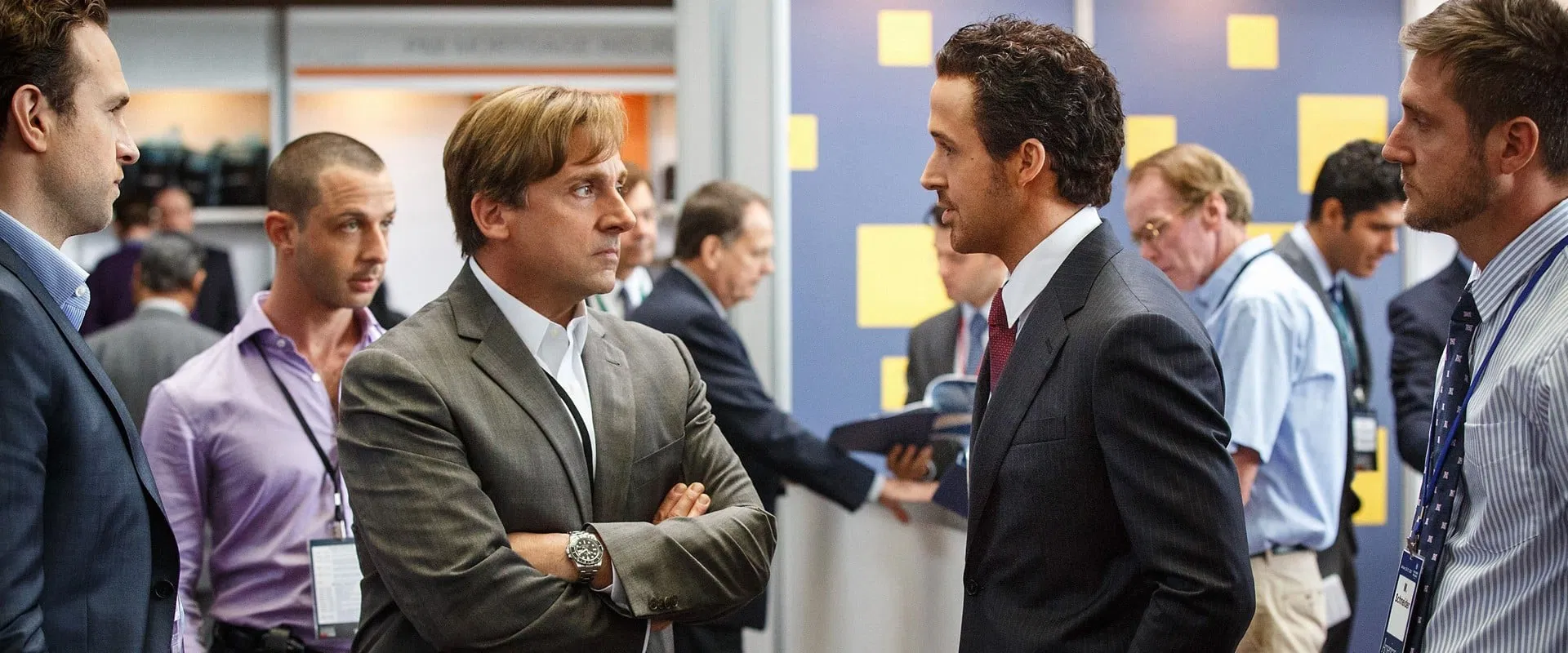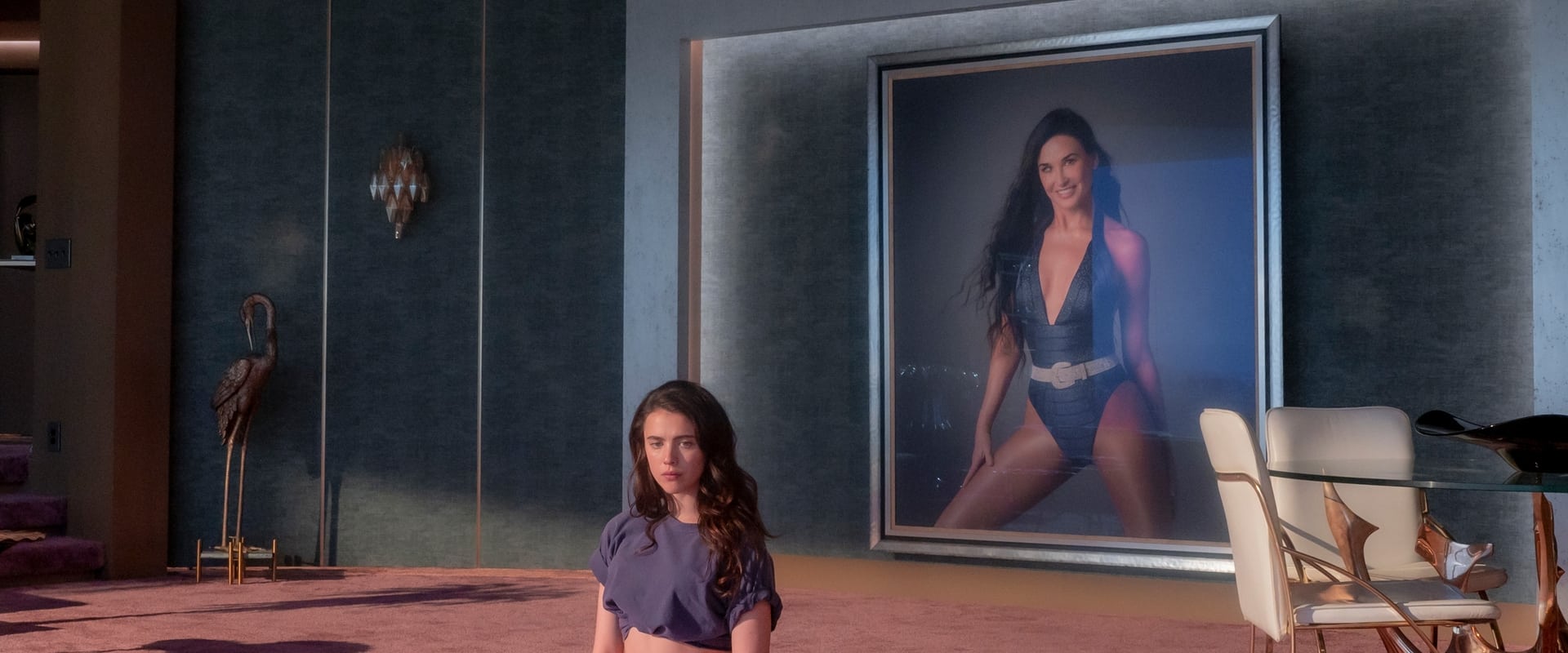It’s not often that a movie about numbers—balance sheets, bonds, the recondite alphabet soup of the financial world—feels like it could blow the roof off a theater. But with The Big Short, director Adam McKay, nimbly adapting Michael Lewis, tries to do precisely that. The film announces its bravura intentions from the opening moments: this isn’t just a disaster movie about the 2008 financial collapse, it’s a corrosive, postmodern vaudeville—with the housing market falling apart, and the fourth wall shattering right alongside it.
McKay, best known for anarchic Will Ferrell comedies, throws himself into the pitiless world of Wall Street with a wicked sense of purpose. The movie is hellbent on exposing not just a few bad apples, but the rotting roots of the orchard. There’s a moral fury rippling through every joke. Yes, the tone is playful—Steve Carell's performance as Mark Baum simmers with indignation until it bubbles over into lacerating sarcasm; Christian Bale, in a performance so eccentric you can almost hear the rubber bands snapping inside his head, plays Michael Burry as if he were Galileo in a Metallica t-shirt, cursed with the knowledge of an oncoming apocalypse.
And yet, McKay doesn’t just want you to watch—he wants you to learn. There are moments here when you can feel the movie clutching you by the lapels, demanding that even the most maths-averse among us understand the swindle being pulled. Margot Robbie, in a bubble bath, explains subprime loans with hostile good cheer; Anthony Bourdain dices rotting seafood to illustrate credit default swaps. These didactic flourishes are brusque and brilliant and, at times, a little desperate—like the class clown who senses the students are drifting and starts juggling flaming torches. What makes it work is the insistence: the film refuses to let information sink like dead weight, forcing comedy and horror to share the same bed.
This is where the film’s peculiar power lies. The humor is bitter, tossed like grenades at the smug egotism of financiers. McKay punctuates the jargon with gags, slapstick, and winks at the audience—but the laughs are always underscored by anger. Occasionally, the zippy edits and breakneck pacing can feel as if the movie is running a little scared of its own density. There are stretches when McKay’s teaching impulse veers perilously close to shouting over the blackboard, markers flying. But what’s refreshing is how little the film patronizes: it trusts you to keep up, and rewards you for caring.
If the movie falters, it’s only by the stiffest of comparisons. The Wolf of Wall Street—the brash, decadent cousin—swirls up its own kind of giddy horror, seducing and damning its characters in the same breath. The Big Short, by contrast, has an exasperated conscience. It wants you to be angry when the credits roll—at the system, at the small men in big suits. And you are.
What lingers, aside from the performances (Steve Carell’s anguished wit is a revelation, Bale’s one-eyed prophet is unforgettable, and Gosling’s Vennett slides through like a smooth-talking Mephistopheles), is the texture of outrage. The film is a furious encyclopedia—funny, shambolic, occasionally didactic to a fault. It takes the audience’s hand and stuffs it into the garbage disposal of recent American history, letting you feel, for once, the cold solution in which Wall Street’s sharks swim.
It’s not perfect; there’s a sort of frantic delight in juggling its contradictions—satirical and earnest, caustic and explanatory—and sometimes the film’s speed exceeds its grasp. But what a relief, in a wasteland of superhero epics and brainless sequels, to see a movie bristling with intent, unwilling to let us off the hook.
The Big Short is a rare commodity: a morality tale with a sharp tongue and a sharper conscience. It doesn’t quite match the anarchic euphoria of The Wolf of Wall Street, but what it lacks in excess, it makes up for in intelligence and righteous humor. The result is an urgently necessary film—one that dares to educate, as it detonates our illusions about the masters of the universe. You leave the theater not only entertained, but returned to your anger—sadder, a little wiser, and marveling, perhaps, that anybody still buys what Wall Street is selling.


